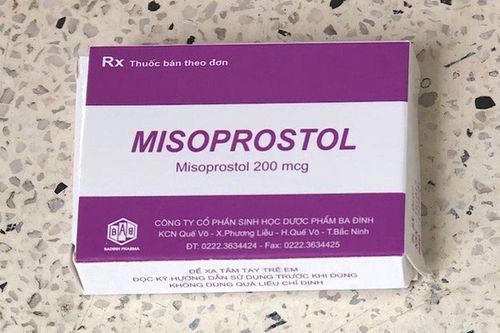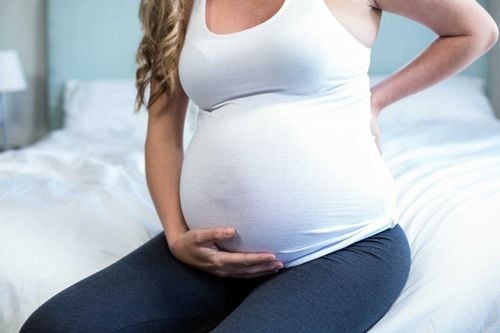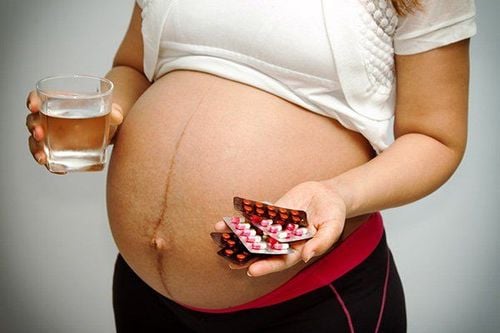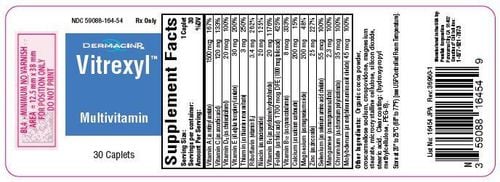This is an automatically translated article.
The article was written by Master, Doctor Nguyen Nhu Thu Truc - Obstetrician and Gynecologist - Department of Obstetrics and Gynecology - Vinmec Nha Trang International General Hospital.
Anemia during pregnancy is a common disease with typical symptoms such as fatigue, dizziness, lightheadedness, shortness of breath on exertion, pale mucous membranes (expressed in lips or eyelids). The disease causes serious effects on the health of pregnant women with anemia and the fetus.
1. Causes of anemia during pregnancy
Normally, the amount of iron absorbed through the diet is only about 5 - 15%, so it does not provide enough iron for the body. Especially during pregnancy, morning sickness and fatigue also lead to iron deficiency anemia.
Iron deficiency anemia during pregnancy is due to the need for iron in pregnant women need more to supply the fetus. Iron requirements increase the most in the 2nd and 3rd trimesters of pregnancy, increasing 5-7 times. Due to increased iron requirements during pregnancy, but the diet is difficult to meet enough, up to 5-7 times.
Therefore, the main cause of anemia and micronutrient deficiency in pregnant women is that the diet does not provide enough needs. Anemia during pregnancy occurs a lot with pregnant women in rural and mountainous areas due to difficult economic conditions.
According to statistics of the National Institute of Nutrition, the amount of iron and folic acid in the diet of pregnant women in many localities only reaches about 40% of the recommended need. Iron needs of pregnant women need more to provide for the fetus, so iron deficiency, anemia during pregnancy is more common. Women who were malnourished before pregnancy also caused more anemia during pregnancy.

2. Health effects of anemia in pregnant women
According to the World Health Organization WHO, currently about 30% of the world's population suffers from anemia, mainly iron deficiency anemia. Women and children are the most susceptible to anemia. Anemia during pregnancy is an important public health problem in many countries. A survey by the National Institute of Nutrition showed that 36.8% of pregnant women in Vietnam have gestational anemia.
Anemia in pregnant women can cause many serious consequences for both mother and child. With mild anemia, there will be nothing dangerous for both mother and baby, only discomfort in the mother is a little dizzy, but for pregnant women with severe anemia, there are many risks that are especially dangerous for both mother. and babies such as:
Increased risk of miscarriage. Each other striker. Young together. Pregnancy blood pressure. Preeclampsia. Early rupture of membranes. Risk of postpartum hemorrhage, postpartum infection. In addition, the problem of postpartum hemorrhage and postpartum infection will pose a serious risk to the life of an anemic pregnant mother. Maternal anemia during pregnancy leads to folic acid deficiency, which can cause neural tube defects in the fetus such as anencephaly, spina bifida. Iodine deficiency in pregnant women increases the risk of miscarriage, obstetric complications such as premature birth, congenital hypothyroidism, mental retardation.
With babies, the amount of iron stored in the womb is low, and when born, they are more prone to anemia, low birth weight, premature birth, fetal distress or other neonatal diseases than normal children. Babies have a higher risk of low birth weight, preterm birth, fetal distress, prolonged resuscitation treatment, and increased neonatal morbidity and mortality than children without anemia.
Mothers with anemia in early pregnancy have a higher risk of cardiovascular disease than other children. Babies born to mothers with anemia are also prone to anemia, low birth weight, premature birth, fetal distress, and increased risk of neonatal diseases than normal. Iron-deficiency anemia in infants can have long-term effects on brain development and its consequences can further impair the child's ability to learn due to the defect in iron-deficiency myelin formation. Children of pregnant women with anemia in early pregnancy have a higher risk of cardiovascular disease than other children into adulthood.
Therefore, pregnant women need to be detected early so that anemia can be overcome in time. The diagnosis of iron deficiency, anemia during pregnancy is made through routine tests at 12 weeks, or 20 weeks. If pregnant women show signs of anemia, they should not worry. Pregnant women with anemia should have a reasonable diet, full of nutrients, regular sleep regime, stay away from coffee and stimulants.

3. Prevention of anemia during pregnancy
To prevent micronutrient deficiency, iron deficiency and anemia during pregnancy, grassroots health workers, reputable people in the community need to propagate and disseminate information so that pregnant women can actively have a satisfying diet. meet energy and nutrient needs, supplement iron and folic acid tablets.
Pregnant mothers should adhere to the following diet and activities when suffering from anemia during pregnancy:
Iron supplements in pill or liquid form. or through daily foods such as red meat such as beef, fish, liver, egg yolks, green vegetables, legumes, ... Chicken eggs are a rich source of nutrients such as protein, calcium. , phosphorus, iron, minerals and many vitamins are beneficial for the development of the fetus as well as the health of the pregnant woman. In particular, most of the nutrients in chicken eggs are concentrated in the yolk. Pregnant women can eat 3 to 4 eggs per week. Due to the increased need for iron and folic acid in pregnant women, but the diet is difficult to meet, WHO recommends that pregnant women take iron and folic acid supplements with a dose of 60 mg of elemental iron and 400 mcg of folic acid. everyday. Taking iron and folic acid supplements should be taken daily from the time of pregnancy until 1 month after giving birth. For the best absorption of iron, pregnant women should take it on an empty stomach. Note before and after taking iron tablets, do not drink tea, coffee or milk because it will interfere with iron absorption.
To support the iron absorption process is taking place in the best way, pregnant women should supplement with vitamin C found in fruits, green vegetables, ...
Iron tablets have the risk of making Pregnant women with constipation, upset stomach. Therefore, when taking iron tablets, pregnant women should increase their intake of green vegetables and fresh fruits and vegetables to increase fiber and drink more water to avoid this side effect.
After treatment within a few weeks, the iron level of pregnant women will return to normal. However, if the condition does not improve, it is necessary to go to the hospital to perform some tests to find out the cause of the anemia and have the most accurate treatment.
Please dial HOTLINE for more information or register for an appointment HERE. Download MyVinmec app to make appointments faster and to manage your bookings easily.














